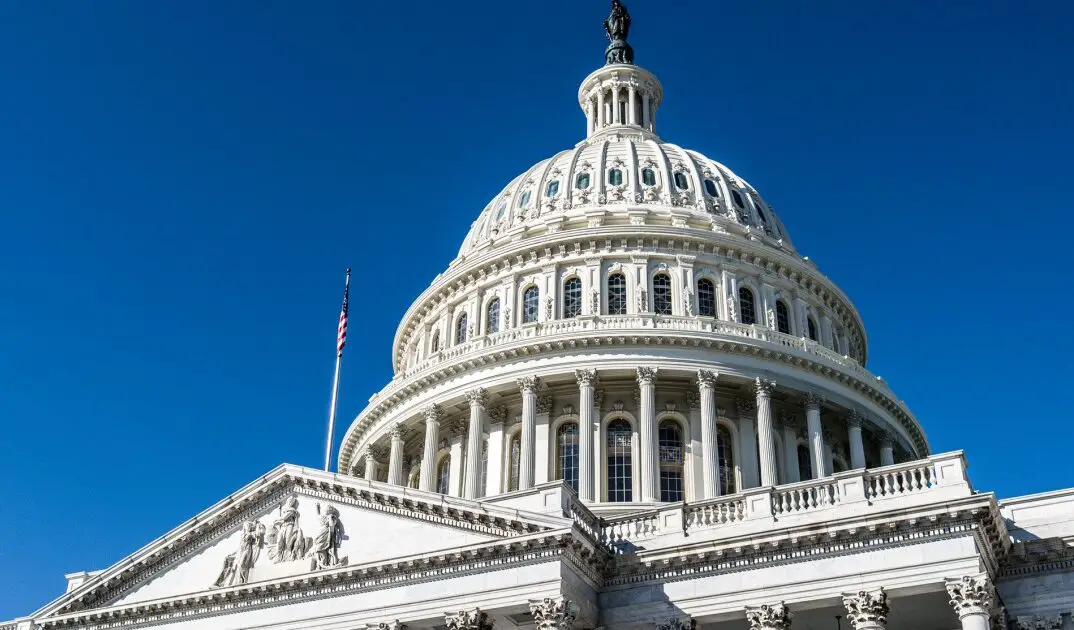By the end of December, Democrats counted up 23 House members deciding to opt for early retirement and not seek reelection in 2022. This week, that number inched up to 25 with two more House Democrats announcing they would be serving out their current terms, but not seeking reelection in November.
With Democrats set to lose big in 2022, retirements are usually the early indicator that some members would rather sit this one out than waste time and financial resources on a bitter race they’re likely already destined to lose. To put this in perspective, by February of 2010, only 8 Democrats had announced retirement leading up to the November election when Republicans took over the House of Representatives.
Rep. Brenda Lawrence, from Michigan’s 14th district, is the latest to step aside and head toward greener pastures:
Rep. Brenda Lawrence (D-Mich.) announced Tuesday that she will not run for reelection, in the 25th retirement by a House Democrat as the party faces tough odds in the midterm elections.
Lawrence, 67, is a four-term member of Congress and serves as vice-chair of the House Appropriations Committee. She has spent three decades in public service. In 2001, she became the first woman and African American to win election as mayor of Southfield, Mich.
“Today, after reflecting on my journey — and, oh my goodness, what a journey — and having conversations with my family, I am announcing that I will not be seeking reelection to Congress,” Lawrence said in a video she posted to her official Twitter account Tuesday night.
Lawrence isn’t the first, nor will she likely be the last. There could be several more who decide in the coming weeks that they’d rather avoid a nasty midterm election spending the year defending Biden’s indefensible record.
List of Democrats Not Running For Reelection in 2022
Here’s the current list of House Democrats not running for reelection in 2022. Some of them are retiring, and others are changing course and choosing to run for another office:
- Ann Kirkpatrick AZ-02 (Retiring)
- Jackie Speier CA-14 )Retiring)
- Karen Bass CA-37 (Running for mayor)
- Lucille Roybal-Allard CA-40 (Retiring)
- Alan Lowenthal CA-47 (Retiring)
- Stephanie Murphy FL-07 (Retiring)
- Val Demings FL-10 (Running for Senate)
- Charlie Crist FL-13 (Running for governor)
- Bobby Rush IL-01 (Retiring)
- Cheri Bustos IL-17 (Retiring)
- John Yarmuth KY-03 (Retiring)
- Anthony Brown MD-04 (Running for attorney general)
- Brenda Lawrence MI-14 (Retiring)
- G.K. Butterfield NC-01 (Retiring)
- David Price NC-04 (Retiring)
- Albio Sires NJ-08 (Retiring)
- Tom Suozzi NY-03 (Running for governor)
- Tim Ryan OH-13 (Running for Senate)
- Peter DeFazio OR-04 (Retiring)
- Conor Lamb PA-17 (Running for Senate)
- Mike Doyle PA-18 (Retiring)
- Eddie Bernice Johnson TX-30 (Retiring)
- Filemon Vela TX-34 (Retiring)
- Peter Welch VT-AL (Running for Senate)
- Ron Kind WI-03 (Retiring)
There could still be more names added, likely in the coming weeks.
What does this mean for House Democrats, and to a greater extent, President Biden’s legislative agenda beyond 2022? With so many retirees hailing from moderate swing districts, the Democratic caucus is likely to get even more progressive and extreme in the House, according to Henry Olson writing in the Washington Post:
Democratic retirements are thus likely to lead to two outcomes: increasing Republican chances of winning a secure majority, and pushing the Democratic Party further to the left. That, in turn, will increase pressure on Biden to follow suit, as progressives angry over the apparent demise of the Build Back Better bill are already urging him to use executive action to advance their agenda. Those calls will only increase as congressional progressives increase their numbers.
In short, Biden’s agenda will grind to a complete halt, worse than the current standstill battle with Sen. Joe Manchin. There would be no new Democratic bills coming from the House, and the Senate could also change hands as well which would mean a total split in power between the legislative and executive branches.
Democrats would end up with more extreme “squad” members as their face heading into the 2024 election trying to defend Biden’s failed record. This current wave of retirements could prove to be damning for years to come.
When Democrats lost the House in 1994, it was a long 12-year drought before they regained control in 2006, only to lose it again in 2010. Many Democratic members see the same writing on the wall and have decided they’d be better off pursuing a meaningful life rather than sit as the minority party until the 2030s.
Donate Now to Support Election Central
- Help defend independent journalism
- Directly support this website and our efforts
